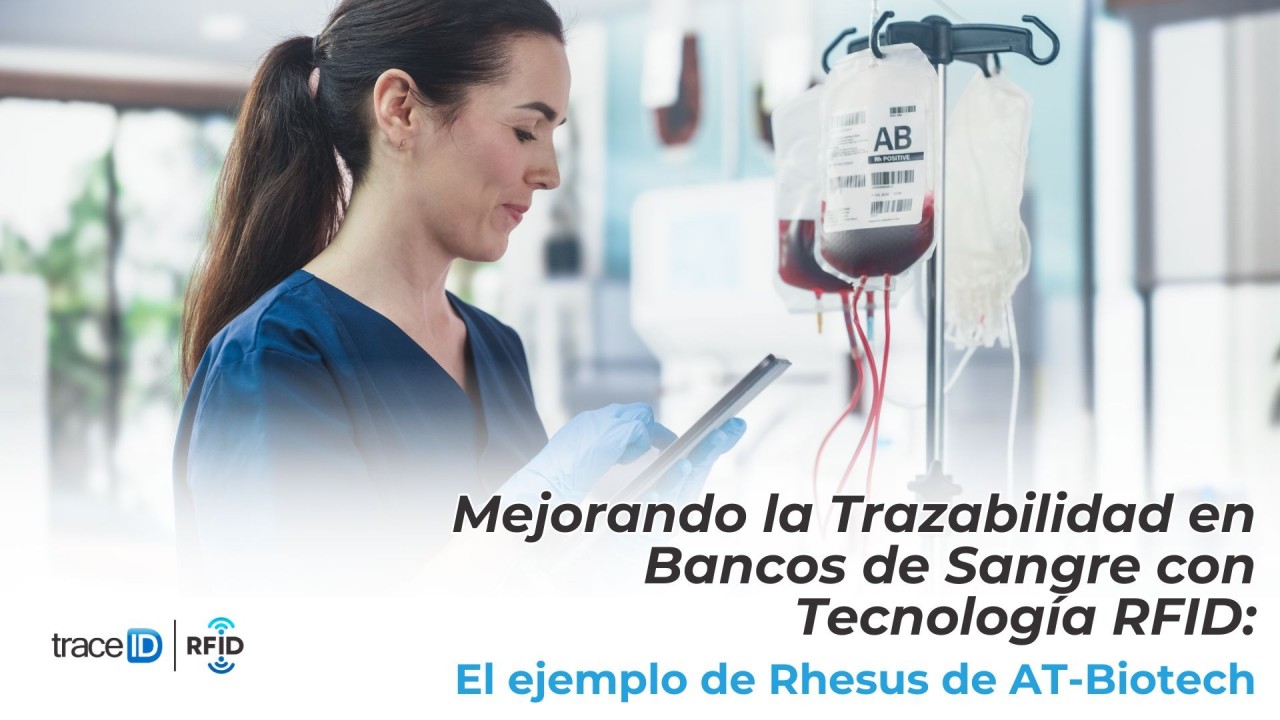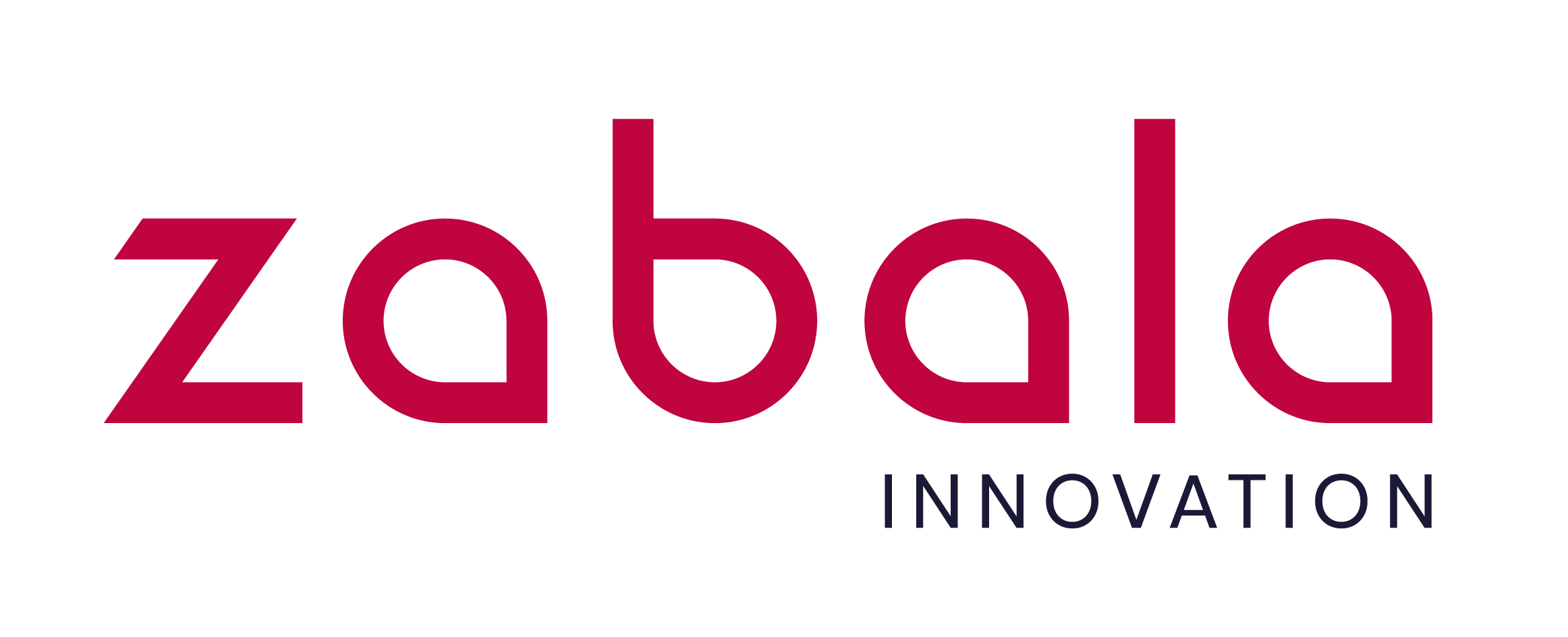August 19, 2024
In the world of healthcare, precision and traceability are essential, especially in blood banks. RFID technology (Radio Frequency Identification) has emerged as an innovative solution to manage inventories and ensure that each unit of blood reaches the right patient safely and efficiently. A prominent example of this technology is AT-Biotech’s Rhesus system, which is revolutionizing traceability and operational efficiency in blood banks.
Blood Unit Tracking
AT-Biotech’s Rhesus system uses RFID tags for each blood bag, allowing precise and real-time tracking from donation to transfusion. This system helps to know the location of each blood unit at all times, significantly improving traceability and reducing the likelihood of loss. According to AT-Biotech, the implementation of their system has enabled many blood banks to reduce inventory management errors and improve operational efficiency.
Reduction of Human Errors
Dependence on manual systems for blood management has historically been prone to human errors. An error in the label of a blood unit could have serious consequences. With the Rhesus system, these errors are drastically reduced. RFID tags allow for precise and automatic identification, significantly reducing the possibility of manual errors and ensuring that each blood unit is handled correctly. This accuracy is crucial for maintaining patient safety and the integrity of the process.
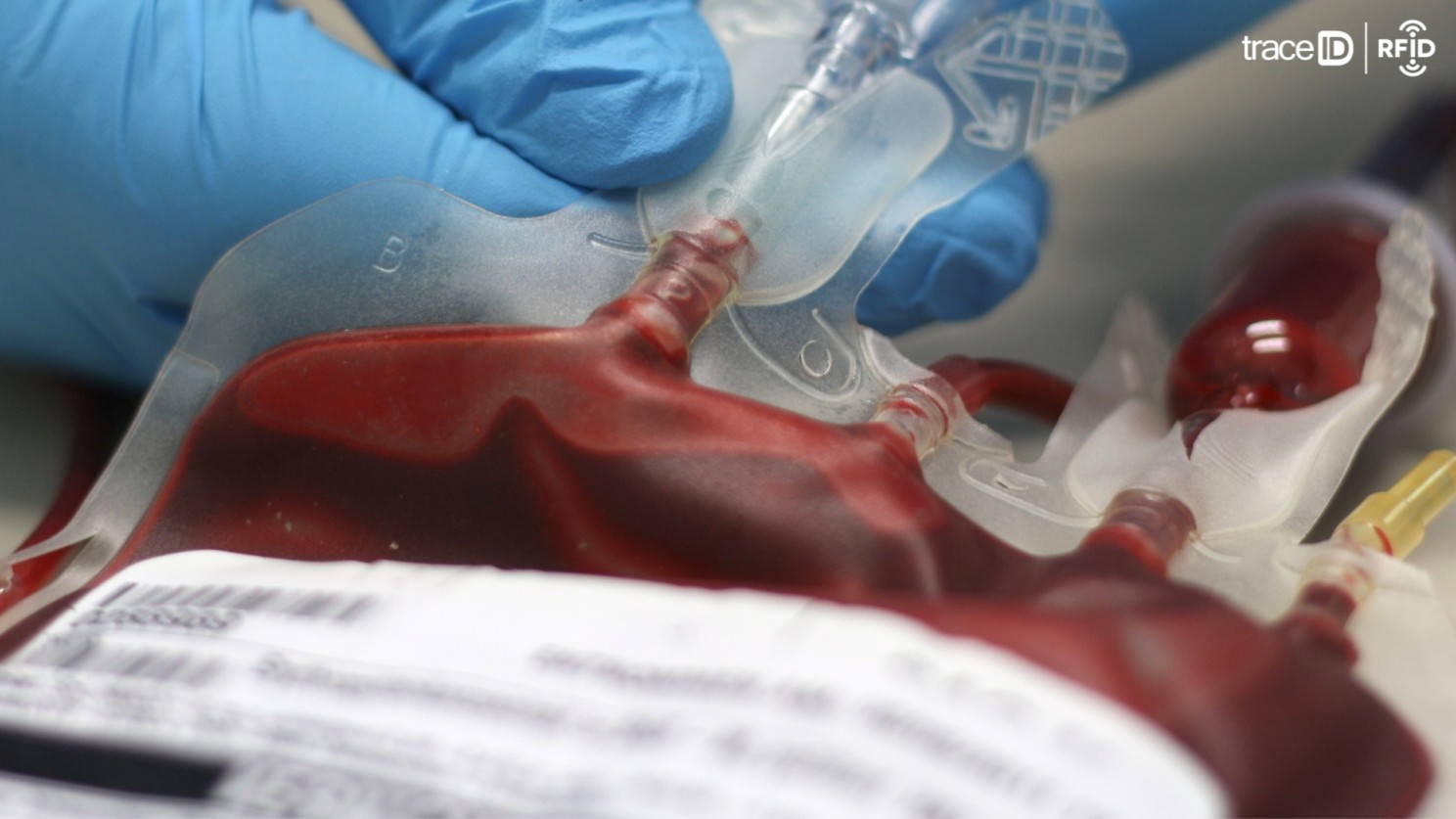
Reduction of Human Errors.
Operational Efficiency
The use of the Rhesus system has shown notable improvement in operational efficiency in blood banks. The time required for inventory checks has been significantly reduced, allowing workers to quickly scan all blood units and receive instant inventory updates. This not only enhances stock management but also frees up time for staff to focus on other critical tasks. The automation of these processes is a major advance in improving efficiency and reducing operational costs.
Patient Safety
Patient safety is a top priority in blood banks. With the Rhesus system, each blood unit is securely tracked throughout the entire supply chain, from donation to transfusion. This ensures that each unit meets all quality standards before being used in a patient. The ability to facilitate real-time location of each unit allows for a quick response in case of any issues, ensuring that patients receive the best possible care.
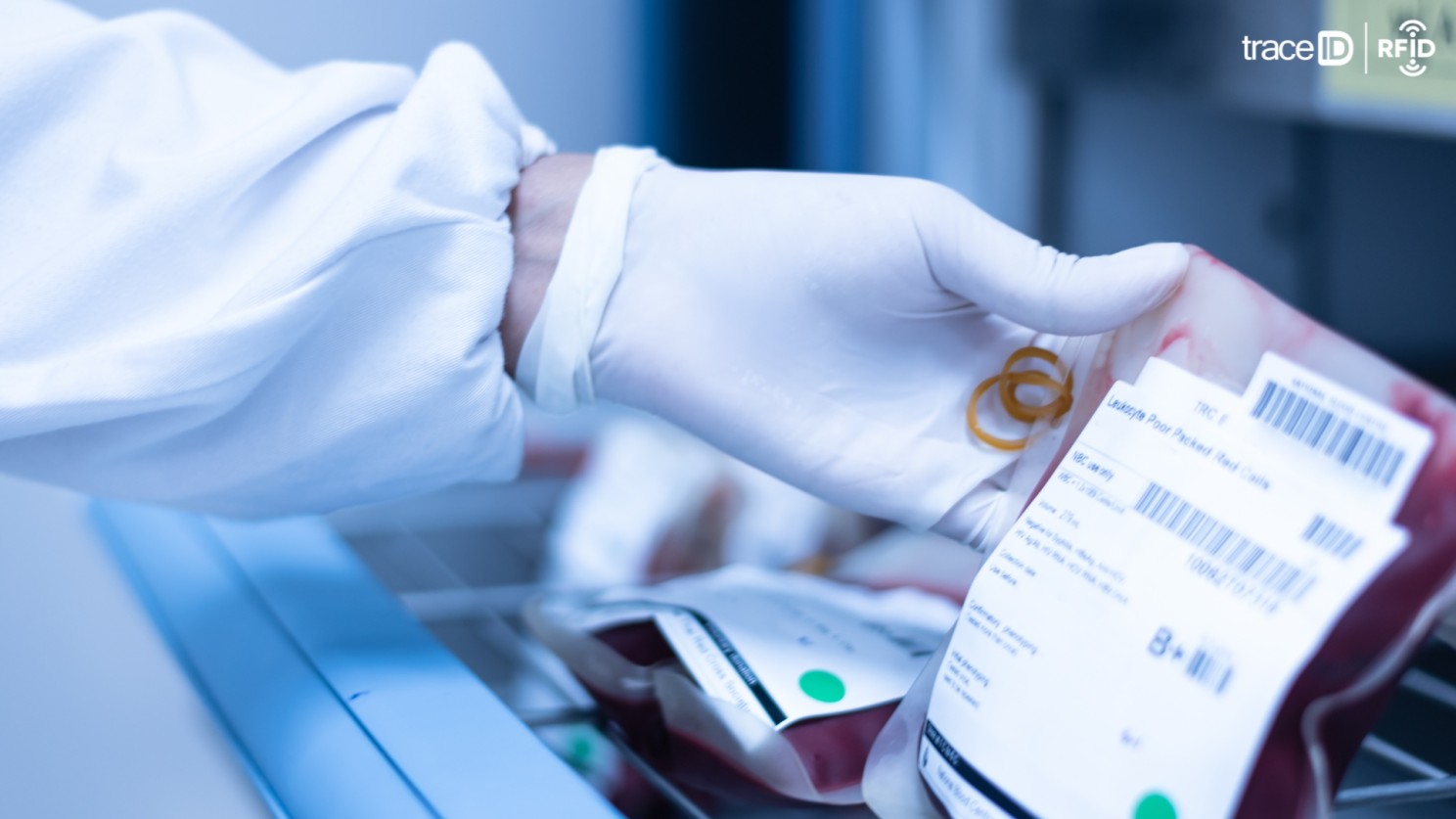
Traceability Trace-ID RFID.
Additional Benefits of RFID in Traceability
In addition to improving traceability and safety, the Rhesus system offers several additional benefits:
-
Cold Chain Maintenance
RFID tags can be integrated with temperature sensors to ensure that blood units are kept at the proper temperatures during storage and transportation. This is crucial for maintaining the viability and safety of the blood.
-
Expiration Management
The Rhesus system alerts when a blood unit has surpassed its expiration date, warning of improper use and increasing patient safety.
-
Audits and Compliance
The data collected by the Rhesus system facilitates audits and ensures compliance with health regulations and industry standards. This is fundamental for maintaining patient and regulatory trust.
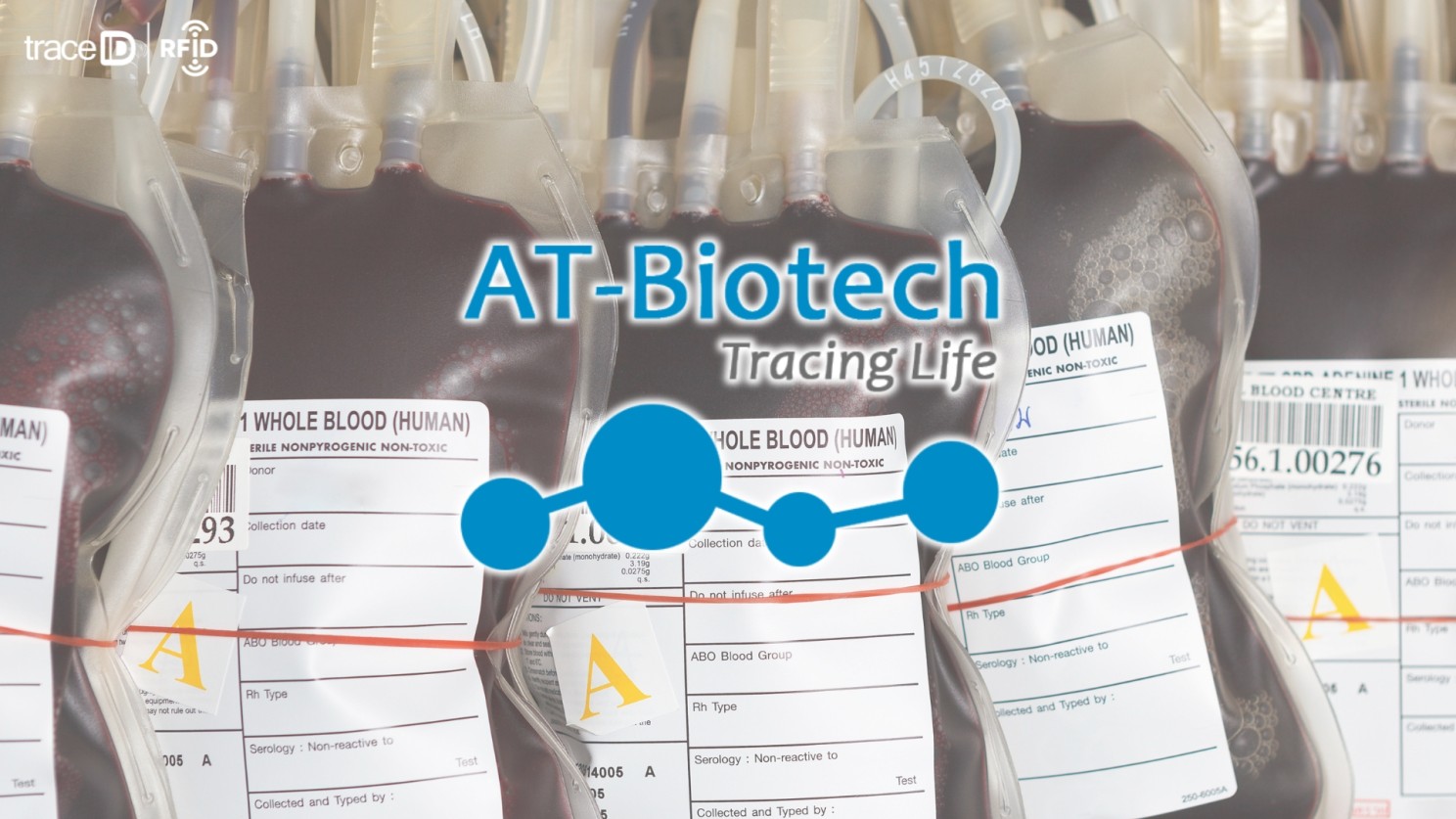
Specialists in the control of biological and pharmaceutical products.
Conclusion
The adoption of RFID technology in blood banks, exemplified by AT-Biotech’s Rhesus system, has transformed the ability to manage and track blood units efficiently and securely. This technology not only enhances accuracy and reduces errors but also ensures that patients receive the best possible care. By improving traceability, optimizing inventories, and ensuring safety, the Rhesus system has become an essential tool for modern blood banks.
Contact us for more information focused on your needs. If you wish to receive information about RFID technology, subscribe to our magazine.
